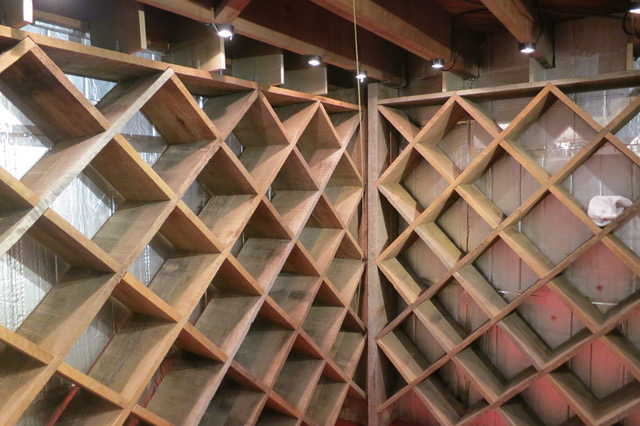I admit it, I’m a wine collector. Collectors span a wide range of individuals with differing motivations and budgets. Some have large cellars filled with the classic wines of the world while others have much more modest accumulations, perhaps tucked into a closet or a corner of a basement. I don’t possess a huge quantity of bottles, but I do have enough variety on hand to pick something for most any menu I might prepare. While some collectors treat wine as an investment, with the intent to sell bottles for a profit later, I always purchased wines with the intent of ultimately consuming them. Some have appreciated in monetary value over the years, but I get greater pleasure in knowing that I had the foresight to acquire such admirable beverages at retrospectively bargain prices than to sell for an incremental profit.
Collecting, in a general sense, is part of the human condition. Whether it is wine, postage stamps, books, coins, dolls, cars or whatever else, we find the urge to collect expressed in many countries and cultures. At its extreme, the collector’s urge becomes obsessive and crosses over to hoarding. What is it that drives us to accumulate the objects of our various fascinations?
Psychologists have studied collectors and defined aspects of the practice as beneficial in many ways. Some of these benefits can be enhanced because the subject is wine. Collectors can find a comforting sense of order in their pursuit. Plus, they can establish their own rules in acquiring their desired objects, making their collection an expression of their identity. Collectors tend to seek out like-minded enthusiasts for their chosen items, giving them a rewarding social group and intellectual outlet.
As wine collectors build their cellars, they can gain psychological benefits from that exercise as well. They encapsulate personal memories around times when they purchased wines. Memorable vintages can serve as a link to important times in an individual’s life. This can trigger feelings of nostalgia which, for most people, has positive implications for mental health. According to some psychologists, nostalgia helps alleviate loneliness, affirm social belonging and enhance our sense of meaning. Happy memories can induce our brain to release dopamine and other compounds that can boost our mood and reduce anxiety and stress. Memories of when you first sampled a favored wine can be triggered by viewing and handling like bottles in the cellar.
So, how many collectors are there in the US? It’s impossible to be precise because there is no clear definition of a collector. I suggest it is a person who has accumulated enough bottles of wine to cover their needs for a few weeks without needing to dash out to buy more for everyday use. That’s probably 3-4 cases – the number can vary widely depending on how many wine drinkers are being served. There are something like 220 million alcohol consumers in the US and perhaps 30%, or 66 million are wine consumers. Of those, perhaps 10% or 6.6 million are what might be termed “fine wine consumers” and maybe 20% of those or 1.3 million have enough bottles on hand to meet my vague definition of a collector.
Thus, collectors are a relatively small group, but they can influence the overall wine market. They are the keepers of the stories of the wines they possess, which brings me to the point of this column. Maybe it’s time to tell the stories around the wines you have accumulated. Nearly all collectors will have some special wine or wines that they have put away in anticipation of serving at some future, indeterminate occasion. Gather with some friends who share your passion and create an occasion. Open that special bottle before it ages too long.
Go ahead and drink it. I have had diverse experiences when I have opened long-cellared bottles. I always have an expectation of how a wine will develop and while most meet expectations, some are sadly well past their best and a few have exceeded my hopes for them. In all cases, there is great interest in the character evident in the glass. Thoughts of all that has transpired since the wine was made both in personal history and in the world at large fuel a lively discussion. There is a finality about the process as well. The bottle or bottles so carefully stored are now gone and the exact experience will never be replicated.

Ultimately, the best reason to collect wine is to give it away. Wine is the beverage of sharing after all. When one opens a bottle, the first thought is often to pour it in someone else’s glass. Sharing a wine that you have treasured enough to purchase and keep for a long period is a great feeling, especially when the wine delivers the aromas and flavors you hoped for. It is especially rewarding for those of us who have been collecting for decades to share our treasured wines with those who have come to appreciate wine more recently. Telling the stories of how you came to purchase the wine and whether it has exceeded expectations can inform the buying strategies of new generations of wine consumers. Go forward, open your bottles and share them. You will not only have a great tasting experience but also open a spot in your cellar for your next acquisition.

